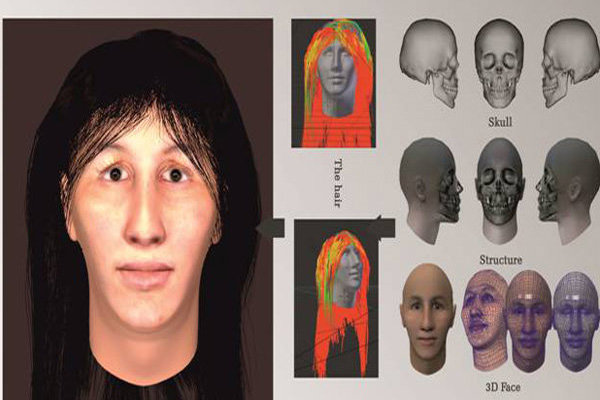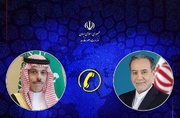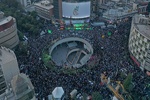In November 2014, Mahsa Vahabi, an Archeology student serendipitously discovered in the dug soil in Mowlavi St., of Tehran Water and Wastewater Company some pottery.
Her discovery of simple earthen material drew attentions from her fellow archeologist and a study team addressed the place on Mowlavi St. Further excavations uncovered from under the soil bones and skeleton, reportedly and supposedly belonging to a women from 7,000 years ago.
Soon archeology researchers carried out research to find out more about its characteristics. A 3D documentation method was carried out on the skeleton by Mohammad Reza Rokni, an expert in Archeology Research Center.
He told Mehr News that to develop a 3D documentation, “we used whole parts of the skeleton and the principle of symmetry of human skeleton to reconstruct the missing parts or parts which are unfit for the reconstruction.”
“The model was developed drawing upon the supine position of the skeleton to represent its true position when interred; to reconstruct the face we added a digital version of missing parts mounted on the 3D model; the prepared model was pinpointed in 11 points in face on eyes, nose, ears, chicks, lips, and chin, and then the digital texturing filled these pinpoints to give us a clear image of the face,” he detailed.
Rokni also commented on the way the hairs of the woman was reconstructed; “since we had no trace of the hairs, choosing a color for hair was a matter of taste; in doing so, we drew upon the signs in pottery found in Cheshmeh Ali; five strong and standard modeling software versions helped us synchronize and corrected,” he told Mehr News.
He claimed that the finished reconstructed face would be 95 per cent accurate compared with the original face of woman last seen 7,000 years ago. “This is a common practice to reconstruct the face of skulls; however, the public would be abandoned uninformed about the practice; to make the reconstructed face more true to natural state, we fed some people’s faces to the machine to use the details to give a better and improved finished face,” he added.
Hamideh Choubak, head of the Archeology Research Center believes it is very interesting for the public to know what the face of ancient past people looked like; she said that the estimations made would not show the level of similarity to the original face.


























Your Comment